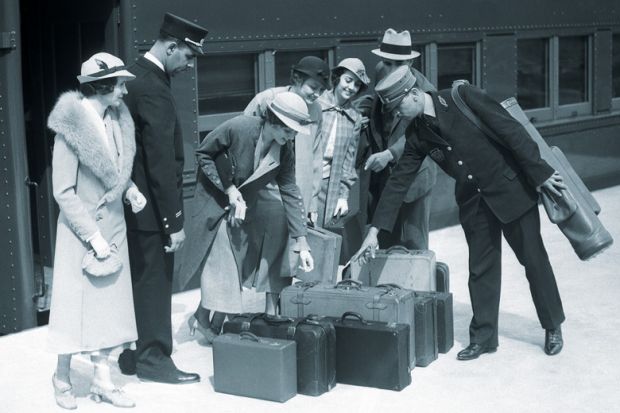It is inevitable that some international students will not achieve as highly as they wish, and may even fail. How, then, can universities help overseas learners to manage their expectations?
That was the focus of a workshop this week at the annual conference of the European Association for International Education, which explored how teaching and counselling staff can help students to stabilise their self-esteem and to accept their limitations.
Frank Haber, a counsellor and intercultural education officer at Jacobs University Bremen in Germany, who was due to take part in the session on 13 September, said that many overseas learners found it difficult to adjust to their new academic context.
“International students come with a high investment: they leave their home countries, sometimes they are one out of a row of siblings where a family puts all their hopes into them, so they come with a burden of expectations,” Mr Haber said.
“They are usually the ones that have been excelling in academia and then they come here and have to compete with other international students and domestic students who are much better adjusted, so they lose some of their academic standing, at least at first, if they ever get it back at all. This stress can impact on their academic performance.”
Universities must be prepared to help international students in such a situation, according to Mr Haber, who said that services run by fellow learners could be an important route for seeking support in the first instance.
“Talking to someone who doesn’t judge them is a huge help: someone who doesn’t look at grades only but sees them as someone; someone they can trust and can talk to,” Mr Haber said. “That in itself gives a sense of relief that, for the first time, they have a person who listens to them and they can really get down to their emotional needs.”
The EAIE session discussed themes such as acceptance of limitations, cognitive reframing and unconditional self-worth, while also offering practical tips for creating learning environments for overseas students that helped them to settle into their new country and learning environment.
For Mr Haber, a key priority is to ensure that students do not focus only on their academic success.
“It makes sense not to put everything on one ‘pillar’,” he said. “We can help students to learn that there are other dimensions to their life.”
POSTSCRIPT:
Print headline: Helping overseas students to cope
Register to continue
Why register?
- Registration is free and only takes a moment
- Once registered, you can read 3 articles a month
- Sign up for our newsletter
Subscribe
Or subscribe for unlimited access to:
- Unlimited access to news, views, insights & reviews
- Digital editions
- Digital access to THE’s university and college rankings analysis
Already registered or a current subscriber? Login








